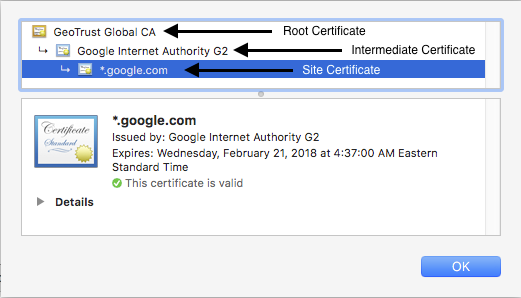Certificates contain public information and CAs always make them available for download. Convert the root certificate to DER format. This can be done with help of the openssl toolkit, where ca.pem is the original certificate filename in PEM format, and ca.der the filename to output, in DER format (which the Java keytool utility can. Add certificate in Java on macOS. Includes examples. Java 2 Standard Edition SDK (J2SE SDK) To develop desktop Java applications or if you need a Java Runtime Environment (JRE) you can use the Java 2 Standard Edition Software Development Kit (J2SE SDK).
Oracle Java Download For Mac
- Java 8 requisite. If you don't have Java 8, make sure you download/install the latest Java 8 JRE or JDK, try restarting to see if it got it automatically. I.e.: in help about installation details configuration check if it's actually using the Java 8 version you pointed at. If it didn't get it automatically, follow the instructions from.
- Download and save the SSL certificate of a website using Internet Explorer: Click the Security report button (a. (Android and Kotlin but the concept is the same in Java) Dan says: Reply. Thursday August 6th, 2020 at 06:44 PM. In chrome on a mac, there is no longer an option to export the certificate. However, you may drag it to a finder.
Introduction
The steps for configuring Client side SSL (CSSL) for a SecureAuth appliance setup to validate CAC or PIV Cards
- Download root/intermediate DOD certificates.
- Install certificates as administrator.
- Verify installation of certificates into local computers cert store (not users)
Installing DOD Certificates
When SecureAuth prompts for a CAC or PIV certificate your webserver is actually matching the client side SSL certificates with the certificates that are installed on your SecureAuth appliance. In order to check these client side certificates we need to install the root and intermediate certificates on the appliance. If you have a specific set of root and intermediate certificates you can install them, if you do not this is the process to install the DOD root and intermediate certificates on the SecureAuth appliance.
1. Open the browser on the server and navigate tomilitarycac.com's download section HERE
2. Download'InstallRoot 3.13.1a from MilitaryCAC'
3. You might be prompted to add militarycac.com to your trusted sites to complete the download
4. Click 'Open' so that the file automatically launches
5. Right-click 'InstallRoot_v3.13.1A' and select 'Run as administrator'
6. At the security warning click 'Yes'
7. Accept the security warning if prompted
Verify the DOD Certificates were properly installed
1. Click the start menu/SecureAuth/Tools and select 'Certificates Console'
2. Navigate to 'Trusted Root Certification Authorities' and ensure you have the DOD Root CA certificate installed
3. Navigate to 'Intermediate Certificate Authorities' and ensure the intermediate certs are there
- Class
Standard Ed. 8

Java Mac Download For Certificate Templates
Class Certificate

- java.security.cert.Certificate

- All Implemented Interfaces:
- Serializable
- Direct Known Subclasses:
- X509Certificate
Abstract class for managing a variety of identity certificates. An identity certificate is a binding of a principal to a public key which is vouched for by another principal. (A principal represents an entity such as an individual user, a group, or a corporation.)
This class is an abstraction for certificates that have different formats but important common uses. For example, different types of certificates, such as X.509 and PGP, share general certificate functionality (like encoding and verifying) and some types of information (like a public key).
X.509, PGP, and SDSI certificates can all be implemented by subclassing the Certificate class, even though they contain different sets of information, and they store and retrieve the information in different ways.
- See Also:
X509Certificate,CertificateFactory, Serialized Form
Nested Class Summary
Nested Classes Modifier and Type Class and Description protected static classCertificate.CertificateRep
Constructor Summary
Constructors Modifier Constructor and Description protectedCertificate(String type)Creates a certificate of the specified type.
Method Summary
All MethodsInstance MethodsAbstract MethodsConcrete Methods Modifier and Type Method and Description booleanequals(Object other)Compares this certificate for equality with the specified object.abstract byte[]getEncoded()abstract PublicKeygetPublicKey()Gets the public key from this certificate.StringgetType()inthashCode()Returns a hashcode value for this certificate from its encoded form.abstract StringtoString()Returns a string representation of this certificate.abstract voidverify(PublicKey key)Verifies that this certificate was signed using the private key that corresponds to the specified public key.voidverify(PublicKey key, Provider sigProvider)Verifies that this certificate was signed using the private key that corresponds to the specified public key.abstract voidverify(PublicKey key, String sigProvider)Verifies that this certificate was signed using the private key that corresponds to the specified public key.protected ObjectwriteReplace()Methods inherited from class java.lang.Object
clone, finalize, getClass, notify, notifyAll, wait, wait, wait
Constructor Detail
Certificate
- Parameters:
type- the standard name of the certificate type. See the CertificateFactory section in the Java Cryptography Architecture Standard Algorithm Name Documentation for information about standard certificate types.
Method Detail
getType
Returns the type of this certificate.- Returns:
- the type of this certificate.
equals
Compares this certificate for equality with the specified object. If theotherobject is aninstanceofCertificate, then its encoded form is retrieved and compared with the encoded form of this certificate.- Overrides:
equalsin classObject- Parameters:
other- the object to test for equality with this certificate.- Returns:
- true iff the encoded forms of the two certificates match, false otherwise.
- See Also:
Object.hashCode(),HashMap
hashCode
Returns a hashcode value for this certificate from its encoded form.- Overrides:
hashCodein classObject- Returns:
- the hashcode value.
- See Also:
Object.equals(java.lang.Object),System.identityHashCode(java.lang.Object)
getEncoded
Returns the encoded form of this certificate. It is assumed that each certificate type would have only a single form of encoding; for example, X.509 certificates would be encoded as ASN.1 DER.- Returns:
- the encoded form of this certificate
- Throws:
CertificateEncodingException- if an encoding error occurs.
verify
Verifies that this certificate was signed using the private key that corresponds to the specified public key.- Parameters:
key- the PublicKey used to carry out the verification.- Throws:
NoSuchAlgorithmException- on unsupported signature algorithms.InvalidKeyException- on incorrect key.NoSuchProviderException- if there's no default provider.SignatureException- on signature errors.CertificateException- on encoding errors.
verify
Verifies that this certificate was signed using the private key that corresponds to the specified public key. This method uses the signature verification engine supplied by the specified provider.- Parameters:
key- the PublicKey used to carry out the verification.sigProvider- the name of the signature provider.- Throws:
NoSuchAlgorithmException- on unsupported signature algorithms.InvalidKeyException- on incorrect key.NoSuchProviderException- on incorrect provider.SignatureException- on signature errors.CertificateException- on encoding errors.
verify
Verifies that this certificate was signed using the private key that corresponds to the specified public key. This method uses the signature verification engine supplied by the specified provider. Note that the specified Provider object does not have to be registered in the provider list.This method was added to version 1.8 of the Java Platform Standard Edition. In order to maintain backwards compatibility with existing service providers, this method cannot be
abstractand by default throws anUnsupportedOperationException.- Parameters:
key- the PublicKey used to carry out the verification.sigProvider- the signature provider.- Throws:
NoSuchAlgorithmException- on unsupported signature algorithms.InvalidKeyException- on incorrect key.SignatureException- on signature errors.CertificateException- on encoding errors.UnsupportedOperationException- if the method is not supported- Since:
- 1.8
toString
Returns a string representation of this certificate.- Overrides:
toStringin classObject- Returns:
- a string representation of this certificate.
getPublicKey
- Returns:
- the public key.
writeReplace
Replace the Certificate to be serialized.- Returns:
- the alternate Certificate object to be serialized
- Throws:
ObjectStreamException- if a new object representing this Certificate could not be created- Since:
- 1.3
- Class
Standard Ed. 8
- Prev Class
- Summary:
- Nested |
- Field |
- Constr |
Java Mac Download For Certificate Free
- Detail:
- Field |
- Constr |
Free Java For Mac
Submit a bug or feature
For further API reference and developer documentation, see Java SE Documentation. That documentation contains more detailed, developer-targeted descriptions, with conceptual overviews, definitions of terms, workarounds, and working code examples.
Copyright © 1993, 2020, Oracle and/or its affiliates. All rights reserved. Use is subject to license terms. Also see the documentation redistribution policy.
Java Mac Download For Certificates
Scripting on this page tracks web page traffic, but does not change the content in any way.
